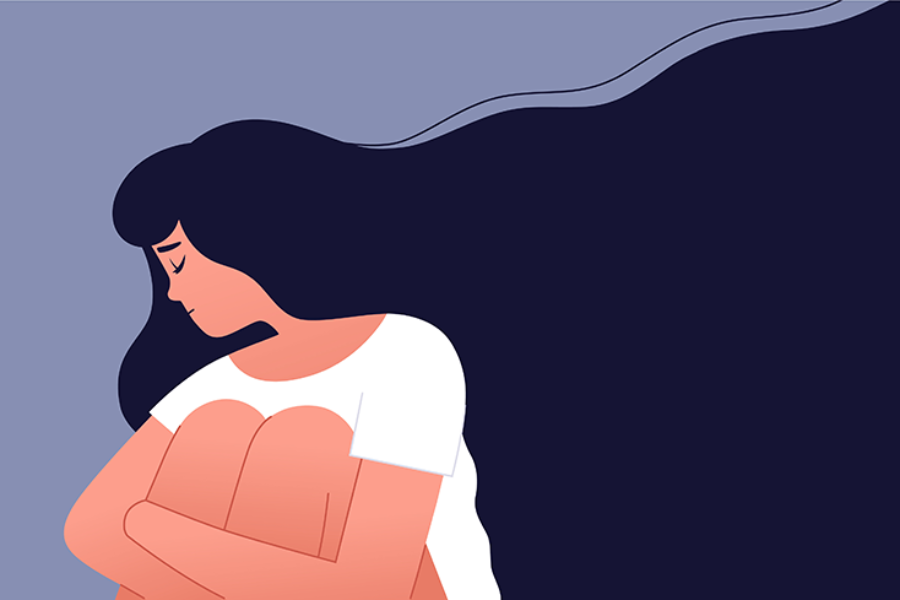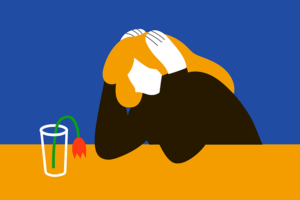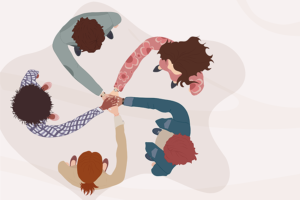By Lizbeth DeSantiago
Around three years ago, I was diagnosed with borderline personality disorder (BPD). I was attending “regular therapy,” as I like to call it, for about five and a half years — on and off with different therapists, at different clinics, and taking several medications. Eventually, I settled with one therapist. But after a year and a half of being together, she told me I would need to transfer at a different clinic where I would receive more intensive therapy. She also mentioned BPD for the first time.
I hadn’t heard of this disorder before, and I wasn’t familiar with its symptoms or manifestations. It was brand new to me. What I did know was that being told to switch clinics for different treatment was hurtful. I cried during my last session, and when my therapist asked me why I was crying, I didn’t even know how to explain what I was feeling.
However, after receiving this diagnosis and trying dialectical behavioral therapy (DBT) for some time, I began to make progress and feel more at peace. Since starting this treatment, I have learned to recognize and sit with my emotions. Developing strategies to acknowledge my feelings has helped me accept my circumstances and live a happier life, even with its struggles.
As I reflect on what I’ve learned on my ongoing mental health journey, a few lessons stick out:
Don’t Fear Your Diagnosis: It Can Help Explain Your Past
The fear and hurt I felt that day in my therapist’s office was familiar — I believed my therapist got tired of me and my lack of progress and hoped to get rid of me with this transfer — and it was a kind of pain I had always felt. Throughout middle school and high school, I found myself in toxic and unstable friendships, and I always felt like I was the problem.
I would lash out at my friends because I often felt jealous, and I feared I would be replaced by “better people.” I had a falling out with someone I considered to be my best friend, due to my own behavior, but I blamed her for the demise of our friendship and resented her for the loneliness and pain I was experiencing. I continued to struggle to make friends. So, whenever someone new entered my life, I would do everything in power to “keep” them — even if the actual friendship was not good for me.
When I entered a romantic relationship in high school, new unhealthy behaviors emerged. I believed this person was “the one,” and I constantly prioritized him so he wouldn’t leave me. Even when I was not treated well and the relationship took a toll on my well-being and the people around me, I still directed all my attention toward him, hoping he would change one day. Thankfully, this relationship did end eventually. But during that time, I would catch myself “missing” him — or to be exact, missing the feeling of having someone.
As I reflect on my history, I realize that I hated the thought of anyone leaving my life and feared any kind of change. Any time someone important left my life, my world came crashing down — and I was constantly living in the past. When I was eventually evaluated and officially diagnosed with BPD, I felt like all the confusing and painful events of my adolescence and beyond finally made sense.
Upon hearing the symptoms that led to my diagnosis, I felt something click. I found relief in finally knowing what was wrong — and what solutions were available to me. This diagnosis could explain some of my overwhelming feelings and fears of abandonment. It explained feelings of emptiness and self-hatred. It all finally made sense.
Finding The Right Treatment Takes Time
When I attended my standard psychotherapy appointments, I often like I was in a hole. I was stuck and simply couldn’t make progress. I returned to harmful behaviors and wondered why I couldn’t change.
It turns out that what I needed most was to learn how to cope with difficult emotions — something I practiced in DBT. At first, I wasn’t enthusiastic about this kind of therapy, but with time, I came to realize the value of practicing daily mindfulness rather than ignoring my emotions until moments of crisis.
I also learned specific skills to put into practice when I’m struggling to manage my feelings. On skill that particularly stands out is DEARMAN — an acronym that stands for Describe, Express, Assert, Reinforce, Mindful, Appear confident and Negotiate. Following the steps described in this skill has guided me in effective communication when I’m emotionally overwhelmed or activated and feel the impulse to shut down.
Another skill that I rely on is simply “checking the facts.” This entails breaking down a situation and separating the facts from your emotions and beliefs. When I’m seeing things in black and white or struggling to grasp what’s “real,” taking this step back to assess the situation brings some calm and clarity. It challenges me to recognize my emotions, observe my surroundings and view the situation from other points of view. This work can be intimidating, but I practiced this kind of mindfulness regularly, I started seeing positive changes in my life.
Your Mental Health Journey Is Lifelong
Despite finding the right treatment, managing my mental health condition is an ongoing battle. Sometimes, I wish I had known how hard this work would be. How difficult it is to acknowledge feelings of pain and emptiness and explore their origins. How difficult it is to manage your fears of losing those close to you because of your intensity. How hard it is to be told your behavior is “toxic” or “possessive.”
But I’ve also learned that I have a chance to fight stigma surrounding BPD. I have come to understand just how damaging stigma can be; indeed, finding your identity can be difficult when the world reduces you to your symptoms. These daily battles are overwhelming, but I know I can’t give up. I can change how people see this condition, and I can fight for my own well-being.
To those who also have BPD, we are not alone and its always ok to reach out. Take it day by day; recovery is not something that should be rushed. And remember: progress is progress, no matter how small it may seem.
Lizbeth Desantiago is 19 years old and loves learning about mental health and psychology. She is currently attending college in hopes of becoming a nurse and working in a psychiatric unit to help those who struggle as well.




